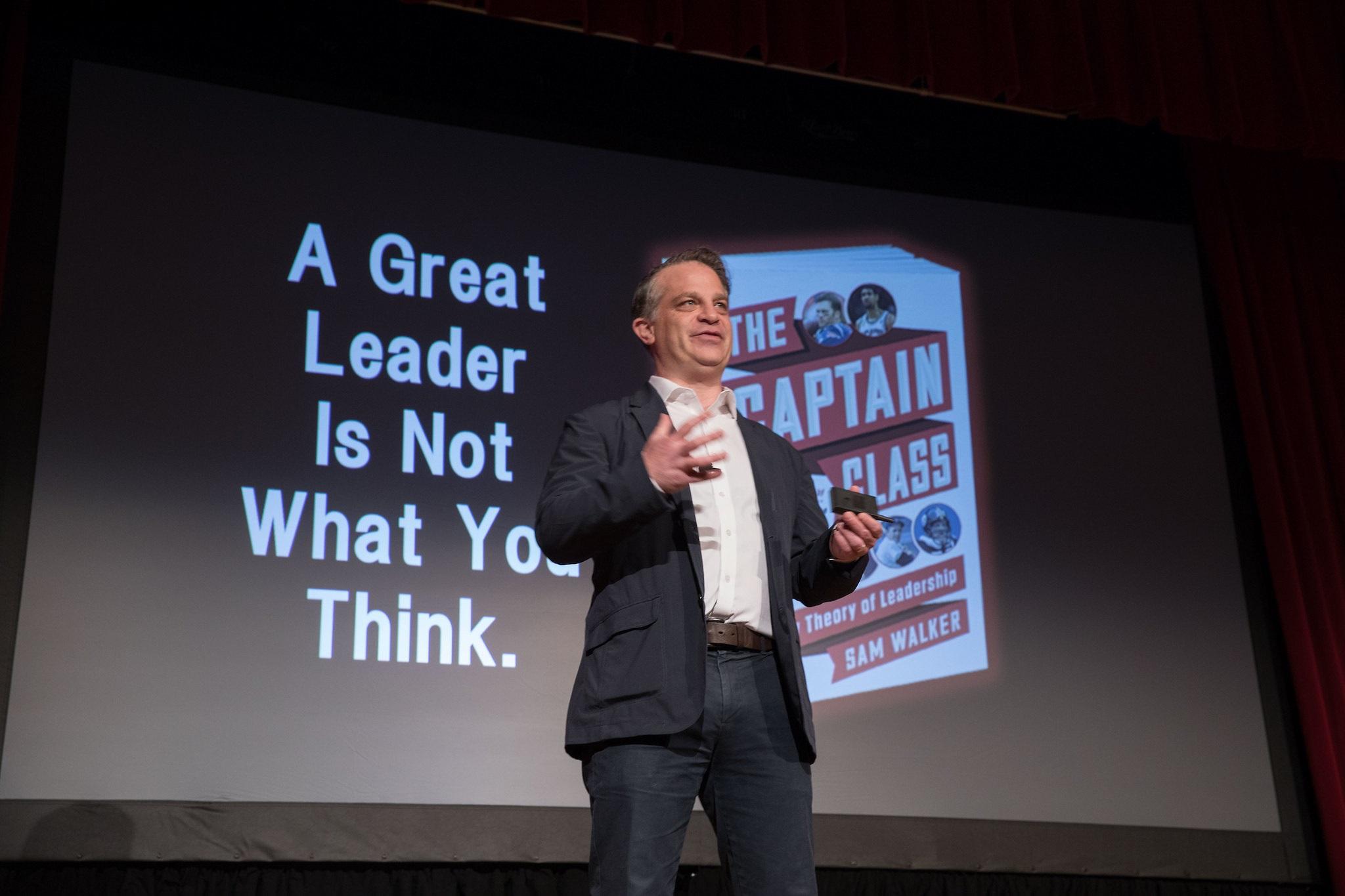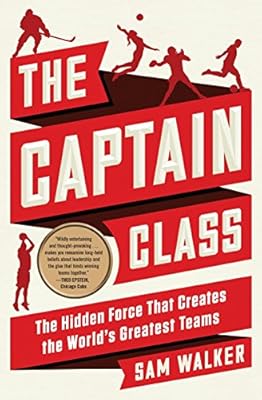
Simple, Not Easy: Talking leadership with bestselling author Sam Walker
What seemed like a clear-cut research project on the “secret sauce” behind the greatest teams in sports history has evolved into a multi-year endeavor and bestselling book for Sam Walker, a Wall Street Journal columnist and one-time editor. Walker, author of The Captain Class: A New Theory of Leadership, took the stage as the kickoff keynote for The Ohio State University Center for Operational Excellence’s seventh-annual Leading Through Excellence summit. Before his visit, he sat down with COE to chat about the biggest takeaways from his book – and where the project is taking him next. The following conversation has been condensed and lightly edited for clarity.
COE: A huge surprise in your research was that you were able to drill down to this captain role as a defining ingredient, but you sketch that captain role through several key methods. Which of these key behaviors surprised you the most?
Sam Walker: They were so surprising in the aggregate for one main reason, which is that it just had nothing to do with natural ability, or “God-given talent.” It’s not that that stuff isn’t good; it’s great to have talent and charisma, but that doesn’t mean you can be a great leader. The one the really surprised me the most, though, was the communication piece, the fact that these great captains don’t like to make speeches – and that’s not at all required, even a little bit. I thought that’s one of the key ways you motivate people, but the key to sustaining excellence is this one-on-one, intense individual interaction. I thought that was revelatory.
COE: You get into some tricky territory on the idea that some of these great captains weren’t afraid to commit “intelligent fouls,” or break the rules a bit. How does this translate to the business sphere?
 SW: The takeaway for business is that it’s really about how people are perceived. There are people out there who may have a prickly or somewhat difficult personality who don’t want to go along with the initiative that everyone else is embracing. Sometimes these people will push the limits of what’s acceptable personality-wise in a business context. Be really careful before you rule them out as a leadership candidate. These people generally care more about a collective outcome and if they’re perceived as difficult they don’t care as long as the outcome is achieved.
SW: The takeaway for business is that it’s really about how people are perceived. There are people out there who may have a prickly or somewhat difficult personality who don’t want to go along with the initiative that everyone else is embracing. Sometimes these people will push the limits of what’s acceptable personality-wise in a business context. Be really careful before you rule them out as a leadership candidate. These people generally care more about a collective outcome and if they’re perceived as difficult they don’t care as long as the outcome is achieved.
If you’re dealing with someone like this you have to look at the behavior: Was the moment that cross the line motivated by the team or by ego? Most of the times you realize these people are willing to sacrifice their image to help the team. That, to me, is crucial; we have to be able to distinguish that from other kinds of negative antics.
COE: We’re in an era where CEOs have more visibility than ever, and we’ve even seen some of them become tabloid fodder. Do you see any particular danger, or opportunity, in how this may affect the way we cultivate these “corporate captains,” so to speak?
SW: I’ve thought a lot about this, particularly the fact that a lot of companies have gone in the other direction for a more low-key, humble leader who doesn’t call attention to themselves. First of all, I think it’s OK to have a leader who comes in and breaks a lot of china and has an irreverent leadership style. Sometimes an organization needs someone like that to come in and disrupt things. But it’s very important to have the next person be very different: low-key, and with the ability to leave some broken things broken and fix the things that need fixing. That one-two punch is something companies should do intentionally.
I also think we’ve gone a little too far in finding low-key people; we’re almost over-correcting. I think we need to have a smart dialogue about what someone at the top of an organization needs to do. So much of the research suggests there’s a certain level of charisma and influence, fun and daring coming from the corner office. It’s infectious, and it motivates people. We need to be careful before we think we need some low-key apparatchik running the business.
COE: But does that dynamic work in middle management?
SW: That job is a complicated one because it takes a unique combination of skills. We spend too much time on personality, listening to what people say and thinking about tone and all of that – but we don’t look carefully at what people do, how they actually lead. We’re too quick to conflate personality with leadership, for example, whether someone is introverted or extroverted, fun-loving or serious. None of those things matter. It’s what they do, especially in moments of adversity.
COE: Turning back to sports for a moment, I thought it was interesting that LeBron James only comes up in passing a few times. What are your thoughts on King James and what leadership lesson can we take away here?
SW: I’ve looked at the entire history of sports, and LeBron is maybe the only athlete I’ve ever seen who’s the best player in the sport, a superstar talent, an unequivocal leader of a team who really has more power than anyone: the coach, even the owner in some respect. This has never happened before, and it’s also what’s holding him back. I think it’s too much for one person to do. My theory about him has always been that if he’s going to win a bunch of championships it’s going to be toward the end of his career when he starts to lose his step and get more people involved. He would have to change his relationship to the team and to the game.
Turning to a business context, the problem is that a lot of people have the potential to be a great leader, but not everyone has the motivation to put in the hard work to make it happen. That will either come in time or it won’t.
COE: Did this project take you where you expected it to?
SW: I wasn’t a leadership expert, and I absolutely didn’t think this is where this project would lead me in the end. What surprised me the most is that it’s actually pretty simple – but that doesn’t mean it’s easy. In fact, being a good leader is incredibly exhausting and difficult, and it requires a level of selflessness and an ability to do something without getting the credit. It’s not something we teach and it’s not something that comes naturally to most people.
COE: Where is this project taking you from here?
SW: I’m working on the second phase of this idea, namely: How do you systematically, methodically try to create teams along these lines? The question isn’t so much how you achieve excellence, because inside every organization it’s different. The question is how you sustain it, and the research seems to boil down to one basic thing: People want to be on a great team where a good manager feels more like a coach than a boss.
We’re all realizing that management – not just senior management but management all throughout the organization – is really the key to everything, and so many challenges can be addressed by building better teams and being smarter about how you promote. We’re looking at a future where companies completely rethink the way they do HR and the way they train managers.
Walker’s book, The Captain Class, is available in stores and online. Highlights of his summit keynote will be available for COE members on the members-only website the week of May 13.







